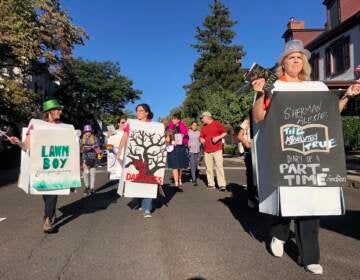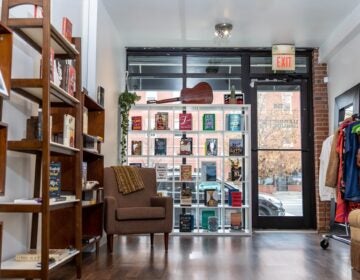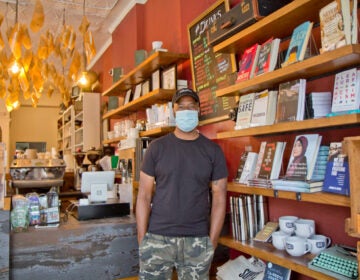Independent bookstores are coming back in Philly, across the U.S.
Chain retailers are struggling, but there are many reasons why independent bookstores are thriving in Philly and other places across the U.S.
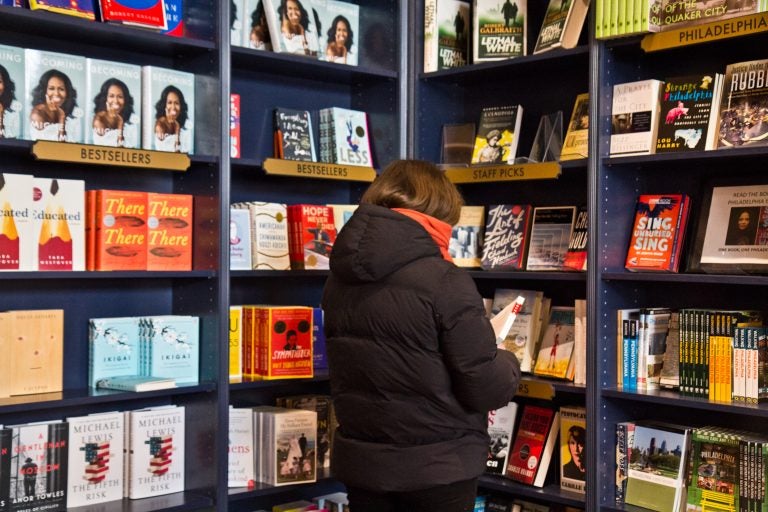
A customer browses the shelves at Shakespeare & Co. in Center City. (Kimberly Paynter/WHYY)
This is the age of Amazon. Brick-and-mortar retail is flailing. And print books? Those were eventually supposed to go the way of the dodo after the introduction of Kindle and other e-readers.
But in Philadelphia, and many other markets across America, independent booksellers are defying conventional wisdom and staging a comeback.
When Alexander Schneider and Christina Rosso-Schneider opened A Novel Idea on Passyunk Avenue in late 2018, they saw a flood of enthusiastic customers.
“A lot of people come in and say, ‘I’m so glad you are here. I’ve been waiting for a bookstore on the avenue. I’ve always wanted something like this here,’” said Schneider. “Between our soft opening and our grand opening, it was absolutely insane. There were just people everywhere, and everyone was so gracious and welcoming. It was more than my wife and I could have ever asked for.”
The American Booksellers Association’s membership in Philadelphia increased by almost 15 percent between late 2017 and late 2018. First, Uncle Bobbie’s Coffee and Books opened in Germantown, then Shakespeare & Co. in Rittenhouse Square, and finally A Novel Idea in South Philadelphia.
The association’s CEO, Oren Teicher, said Philadelphia isn’t an outlier. After decades of retreat, independent bookstores are coming back all over the United States, and not just in big cities.
Over the past six years, association membership has increased by 15 percent and now stands at more than 1,850 companies with about 2,500 locations. Those shops are boosted by the fact that sales of print books have been increasing every year since 2013.
Teicher said the industry’s comeback cannot be traced to any one factor. He posited that some American consumers have tried to steer more of their business to neighborhood stores — the much-vaunted “localism movement” — where their spending can more fully stimulate the communities where they live.
Independent bookstores can also offer personalized experiences that online sellers can’t, giving them an edge over even world-spanning companies such as Amazon.
“I don’t ever underestimate Amazon’s effect and impact, but we have figured out how to compete by doing what we do better,” said Teicher. “We really think having a neighborhood bookstore, staffed by people who have read the books on the shelves, has a real role to play in communities.”
Amazon’s demolition of chain bookstore competitors — such defunct companies as Borders and B. Dalton — probably also played a role. Those mall-based behemoths began cutting into the profits of independent bookstores back in the 1980s, and their removal from the market gave smaller shops more breathing room.
As traditional retailers have struggled in recent years, many of the new bookstores have also begun offering services in addition to selling books.
Shakespeare & Co. can print and bind books onsite, which allows it to actually make custom tomes from a catalog of more than 10 million titles. It also sells Philadelphia-based La Colombe coffee and food from Metropolitan Bakery.
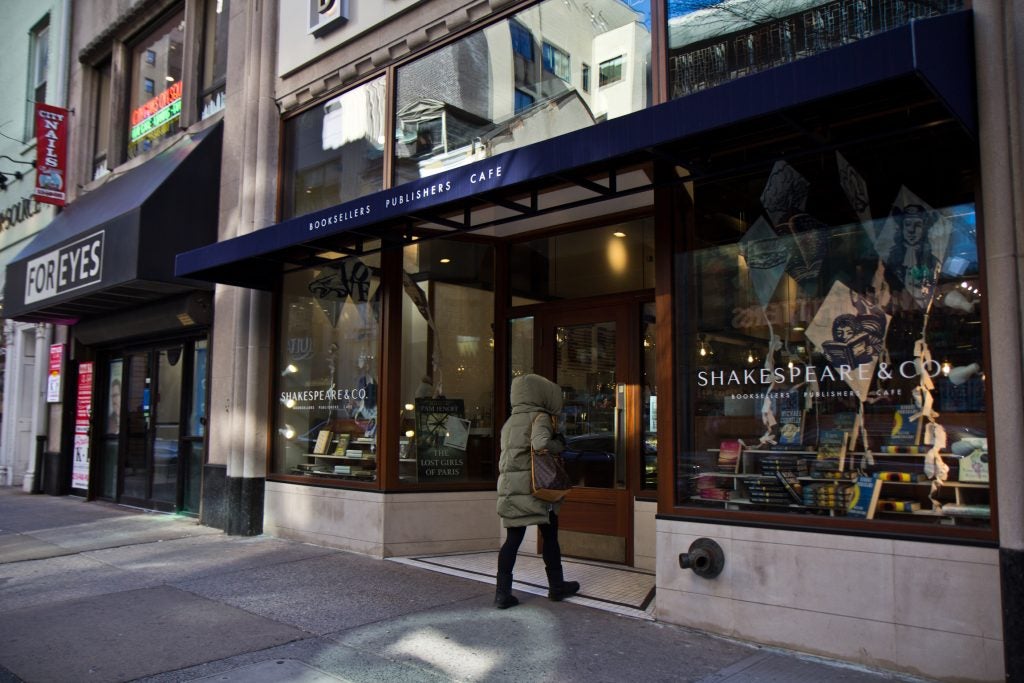
Uncle Bobbie’s is also a coffee shop and restaurant, and serves as an event space. Temple professor and media personality Marc Lamont Hill created the space and helped curate the collection to have a special emphasis on African-American history and political activism.
“Right now, there is so much erasure of black consciousnesses and spaces where we can be our authentic selves, so it’s more important that people who look like us are making time for these spaces to be cultivated,” said Isabel Ballester, the events coordinator for Uncle Bobbie’s. “What makes us different and unique is that we are specifically catering to such a niche group of people that what we are doing isn’t just about bookselling. We provide a whole experience, on so many different levels, that Amazon and e-books can’t do.”
There are 18 Booksellers Association members in Philadelphia — although some, like the museum shop at the Barnes Foundation, aren’t traditional bookstores — and there are plenty of shops that exist outside the organization’s umbrella. Most of Philadelphia’s much-loved used bookstores are not on their rolls, including Last Word in University City, Brickbat Books in Queen Village, and Molly’s Books and Records in the Italian Market.
The recent uptick in independent bookstores will not return the industry to its glory days before the rise of suburban malls, big-box bookstores, and Jeff Bezos’ empire. But with the addition of A Novel Idea and Uncle Bobbie’s, bookstores are at least returning to many Philadelphia neighborhoods that have gone without for years.
“The margins in our business are very modest — no one is getting rich,” said Teicher. “But there are still people who are earning a living.”
WHYY is your source for fact-based, in-depth journalism and information. As a nonprofit organization, we rely on financial support from readers like you. Please give today.




